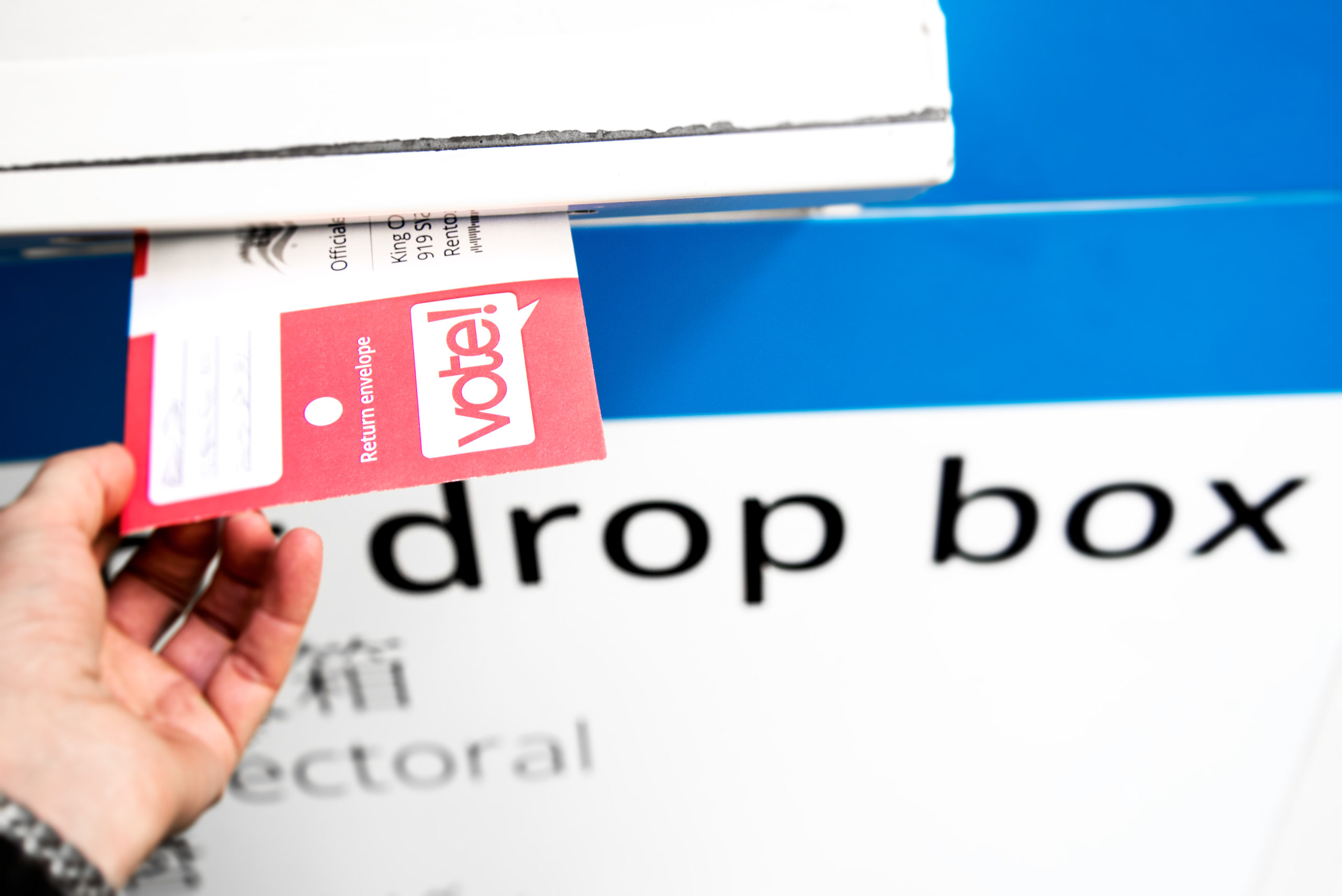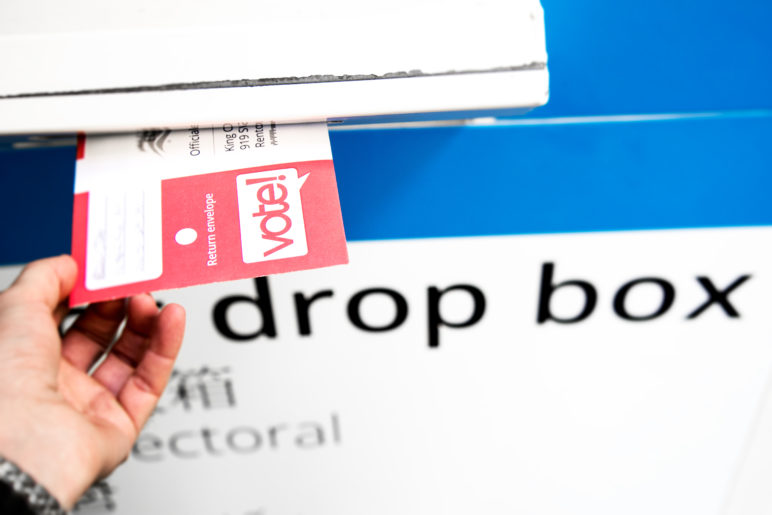Update, 9/30: The Michigan Legislature on September 24 approved the bill that would allow local clerks to begin canvassing votes the day before Election Day. The change would apply only to the November election. House representatives also expanded the bill to include additional election reforms:
- requiring clerks to contact voters who need to correct signature issues,
- allowing election workers to work in shifts on Election Day if they stay on the premises until polls close, and
- adding security measures for ballot drop boxes, such as video surveillance and secure locks.
Update, 9/18: The Michigan Senate in a 34-2 vote on Tuesday approved the bill that would allow local clerks to begin canvassing votes the day before Election Day. The change would apply only to the November election.
Sightline compiled state-specific resources to usher all 50 states (plus DC) through rapid preparations for a spike in absentee voting during the coronavirus pandemic. While Michigan is doing better than most states in its efforts to expand voter access (the state got a B in our grading system for absentee voting access), it still has room for improvement. The good news for Michigan voters: Lawmakers are considering three key changes that could further expand voter access and pandemic-proof election operations this November. If Michigan succeeds, it could help show other states the way as elections officials move fast to give voters safe choices this fall.
Michigan voters in 2018 approved election changes to allow any voter to get an absentee ballot without an excuse. As an additional COVID-19 measure, Michigan’s Secretary of State Jocelyn Benson also sent absentee ballot applications to all 7.8 million registered voters in the state’s August 4 primary election. She attributed the primary’s success—a record turnout of 2.5 million for an August primary—to a record number of people, about two-thirds of voters, choosing to vote absentee. In preparation for November, counties across Michigan are placing 900 secure drop boxes where voters may return ballots.
But Benson said she expects mail-in and absentee ballots in the November election to double or even triple, and is now calling on state legislators to support bills that would help further expand voter access and the state’s ability to handle yet more remote voting. The state still tosses out mail-in votes received late, overwhelms its clerks by requiring they only start processing absentee ballots on Election Day, and doesn’t provide prepaid postage for mail-in envelopes—all policies Sightline and other mail voting experts recommended Michigan change.
Here’s what the three Michigan voter access bills do and where they are in the legislature.
Michiganders are in a good position to safely vote from home this fall, but lawmakers could ensure the election runs even more smoothly by passing these three laws and setting a course for more voter-friendly elections during the pandemic and beyond.

Senate Bill 757
This bipartisan bill—introduced by Republican state Senator Ruth Johnson, former secretary of state—passed a Senate committee in February but still needs final approval from the Senate and House. The bill would allow local clerks in towns with at least a population of 25,000 to start processing mail-in ballots the day before the election, as long as they notify the secretary of state of their intent to do so 40 days before the election.
This bill is an improvement over the current law that prohibits clerks from processing ballots until Election Night, but some clerks believe it doesn’t go far enough for the surge of absentee ballots they’re expecting in November. Clerks would like to be able to process the envelopes sooner and take them out of their secrecy envelopes before Election Day.
House Bill 5987
Fewer than 1 percent of Michigan ballots—about 2,200 votes—were rejected in 2018, but of those, 37 percent were thrown out because they were received late. Currently the state doesn’t count mail-in ballots that aren’t received by the time polls are closed on Election Day. Voters could put their ballot in the mail several days before Election Day, but if the mail didn’t get delivered by Election Day, their vote wouldn’t count. This could be an even bigger problem as the US Postal Service has experienced slowed service and untimely cost-cutting. Voters might not realize they need to allow even more time than usual for their mailed ballots.
One bill currently in the House aims to change that. Introduced by Democratic Representative Vanessa Guerra, HB 5987 would allow clerks to count ballots that are postmarked by Election Day and received up to two days later. The legislation has been referred to a House committee.
House Bill 5991
Right now, voters who have problems with their signatures on their ballots don’t get their vote counted in Michigan. House bill 5991, introduced by Democratic Representative Yousef Rabhi, would require that clerks notify voters if they find problems with their signatures and allow voters to correct them, a “curing” process many states already have successfully in place.
If passed, the legislation would require that voters who mailed in their ballots be notified 10 days before the certification of the election and sign a ballot statement under penalty of perjury. Voters who applied for an absentee ballot and had problems with their signature on the application would get notified, be allowed to appear in person before 8 PM on Election Day and get a new absentee ballot. The bill remains in a House committee.
There’s still time
Michiganders are in a good position to safely vote from home this fall, but lawmakers could ensure the election runs even more smoothly by passing these three laws to expand absentee voting access, and setting a course for more voter-friendly elections during the pandemic and beyond.
Sightline is a 501(c)3 non-profit organization and does not support, endorse, or oppose any candidate or political party.
Hayat Norimine is a freelance writer who grew up in Washington on the border of Idaho. She previously covered city halls and politics for The Dallas Morning News, Seattle Met magazine and The Daily News in Longview, Washington. She has a master’s in journalism from the Medill School of Journalism and a bachelor’s in English from the University of Washington.










